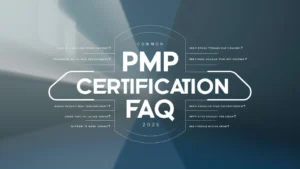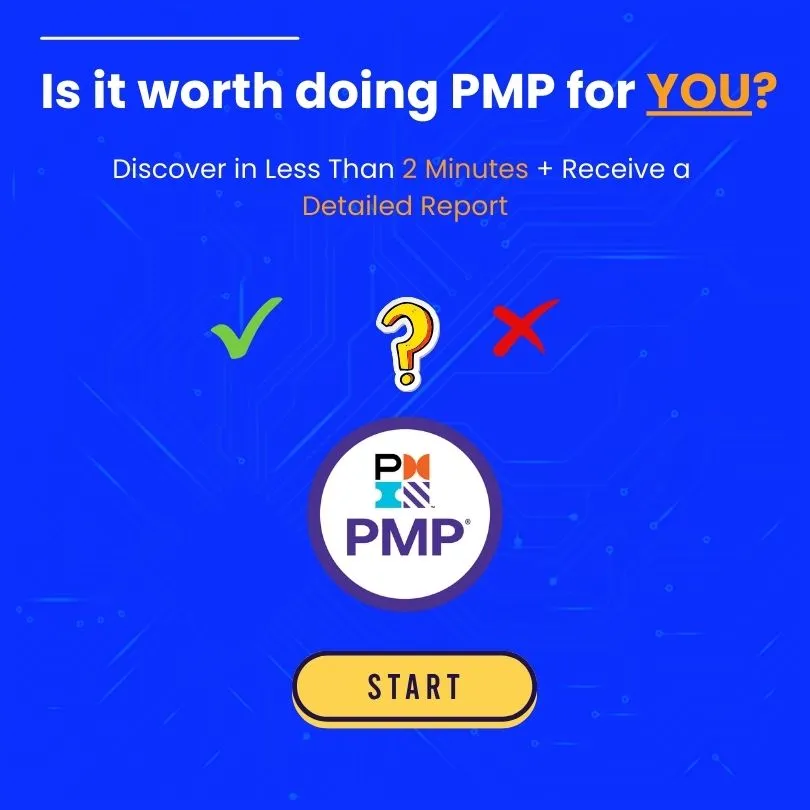The Project Management Professional (PMP) certification, awarded by the Project Management Institute (PMI), is a gold standard for professionals in the project management arena. But one question that frequently bubbles up among PMP aspirants is, 🤔”How the PMP exam is scored?” In this article, we’ll demystify the scoring process, shed light on common misconceptions, and provide insights to help you prepare better. In this article, we’ll explain how the PMP exam is scored, demystifying the process and providing insights to help you succeed. Let’s dive in!
A Glimpse into the PMP Exam
The PMP exam is a computer-based test containing 180 questions. 🖥️ These questions span across three main domains detailed in the Exam Content Outline. It’s important to note that 15 of these questions are considered “pretest” questions 📋 and won’t count towards your final score. They’re included primarily for future test validation.
How Scoring Has Evolved
Historically, the PMP exam had a fixed passing score. Until 2005, a 61% score was the magic number ✨. However, this approach underwent significant changes, and PMI ceased to publicly disclose the exact passing percentage.
The Modern PMP Scoring System
Today, PMI utilizes a more complex, yet efficient system:
🧠 Psychometric Analysis: PMI doesn’t have a fixed passing score for all candidates. Instead, it uses a psychometric analysis to determine how many questions a candidate must answer correctly to pass. This means that the difficulty level of the questions you get might determine your passing score.
⚖️ Equal Weightage: Contrary to some beliefs, each scored question on the PMP exam is worth one point. Your total score is the sum of all the points you’ve earned.
📊 Performance Rating: Your score isn’t just a simple percentage. It’s divided across performance rating categories or proficiency levels – Above Target, Target, Below Target, and Needs Improvement.
Understanding How the PMP Exam is Scored: A Comprehensive Guide
- ❌ Myth: The PMP exam is solely based on the PMBOK Guide.
- ✅ Fact: While the PMBOK Guide is crucial, the exam is primarily based on the PMP Exam Content Outline.
- ❌ Myth: A “Below Target” score in one domain guarantees failure.
- ✅ Fact: That’s not necessarily true. It’s possible to pass if you perform exceptionally well in the other domains.
Gururo, a PMI Authorized Training Partner (#5718), is excited to offer you our comprehensive PMP® Certification Training Course with our PMP Training Plus Pack:
- PMP Training Course
- PMP Exam Simulator 2025
- PMP Application Service
Get PMP certified in just 5 weeks:
- 📚 35 Contact Hours (PDUs)
- 🎥 40+ hours of on-demand videos
- 📝 14+ simulations with 3000+ questions, aligned with the 2025 PMP Exam format
- 🔍Comprehensive explanations for each question and option
- 🗓️ 365 days of unrestricted access
- ✅ Complete PMP application in 1 day, expert-reviewed with no risk of rejection
- 💬 Connect directly with your mentor
- 🏆 Course Completion Certificate
- 📖 Last-Minute Lecture Notes Recap
- 🔄 Unlimited attempts at quizzes and simulations
- 📊 Progress Tracking & Analytics
- 📂 Project Management Templates
- 🕒 24/7 support
Preparing for Success:
Given the evolving nature of the PMP exam scoring, the best strategy is to be thoroughly prepared:
- 📚 Diverse Study Material: Don’t restrict yourself to one source. Dive into the PMP Exam Content Outline, the PMBOK Guide, and other related materials.
- 📝 Practice Exams: Aim for 70% or above in your mock exams. This margin accounts for the uncertainty around the passing score.
- 🤝 Engage with the Community: Join forums, attend workshops, and network with PMP-certified professionals to gain insights and tips.
Conclusion : How the PMP exam is scored
Understanding the scoring system of the PMP exam can give you an edge in your preparation. While the exact passing score remains a well-guarded secret , a robust preparation strategy, coupled with a clear understanding of the scoring, can pave your way to PMP certification success. By understanding how the PMP exam is scored, you can better tailor your preparation strategy.















